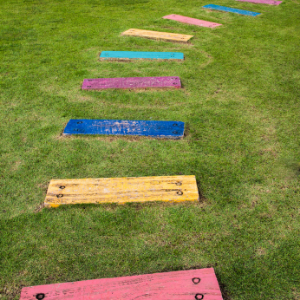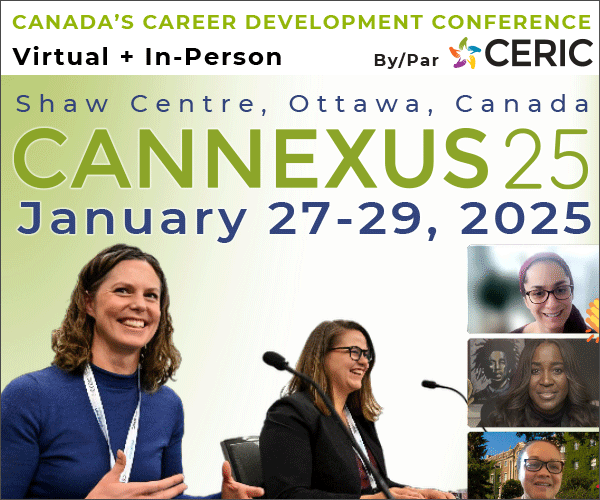A Pathway Model of Emotionally-Associated Predictors of US College Students’ Career Indecision
DOI:
https://doi.org/10.53379/cjcd.2022.329Keywords:
Career decision self-efficacy (CDSE), career indecision, career student planning, emotional intelligence (EI), social well-beingsAbstract
This small-scale study establishes a pathway model to explain how variables with emotional content affect career indecision in higher education. We investigated a total of 240 undergraduate students and a pathway model of direct and indirect effects surrounding career indecision was made by using structural equation modeling (SEM). Our pathway model shows a positive direct effect of procrastination on career indecision (β = .13, p < .001), with negative direct effects on EI, life satisfaction, CDSE, and planning, in terms of career conflict. EI shows a positive correlation with CDSE (β = .51, p < .001). Findings indicate that emotionally-related variables are good predictors of psychology students’ career concerns.
References
Blustein, D. L., Ali, S. R., & Flores, Lisa Y. (2019). Vocational psychology : Expanding the vision and enhancing the impact. The Counseling Psychologist, 47(2), 166-221. https://doi.org/10.1177%2F0011000019861213
Brackett, M. A., Rivers, S. E., Shiffman, S., Learner, N., & Salovey, P. (2006). Relating emotional abilities to social functioning: A comparison of self-report and performance measures of emotional intelligence. Journal of Personality and Social Psychology, 91, 780-795. https://doi.org/10.1037/0022-3514.91.4.780
Chung, Y. B. (2002). Career decision-making self-efficacy and career commitment: Gender and ethnic differences among college students. Journal of Career Development, 28, 277-284. https://psycnet.apa.org/oi/10.1023/A:1015146122546
Coetzee, M., & Harry, N. (2014). Emotional intelligence as a predictor of employees’ career adaptability. Journal of Vocational Behavior, 84, 90-97. https://doi.org/10.1016/j.jvb.2013.09.001
Falco, L. D., & Summer, J. J. (2019). Comparing ability and self-report trait emotional emotional intelligence, fluid intelligence, and personality traits in career decision. Personality and Individual Differences, 64, 174-178. https://doi.org/10.1016/j.paid.2014.02.024
Gati, I., Krausz, M., & Osipow, S. H. (1996). A taxonomy of difficulties in career decision making. Journal of Counseling Psychology, 43(4), 510-526. https://doi.apa.org/doiLanding?doi=10.1037%2F0022-0167.43.4.510
Gray, M. A., Kim, M., & Lee, S. (2021). Simplifying the measurement of college students’ career planning: the development of career student planning scale during the COVID-19 pandemic. Experimental Results, 2, e4, 1-9. https://doi.org/10.1017/exp.2020.69
Gray, M. A., Kim, M., & Lee, S. (2021). Career self-efficacy as a mediator between emotional intelligence and employment planning among US college students. Canadian Journal of Career Development, 20(2), 70-76.
Gray, M. A., Lee, S., & Kim, M. (2020). Comparing self-reported emotional intelligence, self-efficacy, and personality traits in college students’ career decision-making: A pilot study. In S. Lee (Ed.), Exploring the opportunities and challenges of college students (pp. 205-217). NOVA Science Publishers, Inc.
Hair, Jr., J.F., Black, W.C., Babin, B.J., & Anderson, R.E. (2019). Multivariate analysis (8th ed.). Cengage.
Işik, E. (2012). The relationship of career decision self-efficacy, trait anxiety, and affectivity among undergraduate students. Psychological Reports: Human Resources & Marketing, 111(3), 805-813. https://doi.org/10.2466/01.09.10.PR0.111.6.805-813
Jiang, Z. (2016). Emotional intelligence and career decision-making self-efficacy: Mediating roles of goal commitment and professional commitment. Journal of Employment Counseling, 53(1), 30-47. https://doi.org/10.1002/joec.12026
Law, K. S., Wang, C. S., & Song, L. J. (2004). The construct and criterion validity of emotional intelligence and its potential utilities for management studies. Journal of Applied Psychology, 89(3), 483-496. https://doi.org/10.1037/0021-9010.89.3.483
MacCann, C., Jiang, Y., Brown, L. E. R., Double, K. S., Bucich, M., & Minbashian A. (2020). Emotional intelligence predicts academic performance: A meta-analysis. Psychological Bulletin, 146(2), 150-186. http://doi.org/10.1037/bul0000219
Mavronvelli, S., & Sanchez-Ruiz, M. J. (2011). Trait emotional intelligence influences on academic achievement and school behavior. British Journal of Educational Psychology, 81(Pt1), 112-134. https://doi.org/10.1348/2044-8279.002009
Mojgan, F. N., Kadir, R. A., & Soheil, S. (2011). The relationship between state and trait anxiety with career indecision of undergraduate students. International Education Studies, 4(3), 31-35. https://doi.org/10.5539/ies.v4n3p31
Sanchez-Ruiz, M-J., & El Khoury, J. (2019). A model of academic, personality, and emotion- related predictors of university academic performance. Frontiers in Psychology, 10, e2345. https://doi.org/10.3389/fpsyg.2019.02435
Spurk, D., & Straub, C. (2020). Flexible employment relationships and careers in times of the COVID-19 pandemic. Journal of Vocational Behavior, 119, e103435. https://doi.org/10.1016/j.jvb.2020.103435
Tatum, H. E., & Schwartz, B. M. (2020). Chapter 7 Best practice – the capstone course in psychology: Addressing challenges and incorporating best practices. In A. Schwarz andR. L. Miller (eds), High impact educational practices: A review of best practices with illustrated examples (pp. 126-139). Society for the Teaching of Psychology.
Taylor, K. M., & Betz, N. E. (1983). Applications of self-efficacy theory to the understanding and treatment of career indecision. Journal of Vocational Behavior, 22(1), 63-81. https://doi.org/10.1016/0001-8791(83)90006-4
Wong, C. S., & Law, K. S. (2002). Wong and Law emotional intelligence scale (WLEIS). [Database record]. APA Psyc Tests. https://psycnet.apa.org/doi/10.1037/t07398-000

Published
How to Cite
Issue
Section
License
Copyright (c) 2022 Canadian Journal of Career Development

This work is licensed under a Creative Commons Attribution-NonCommercial-NoDerivatives 4.0 International License.














